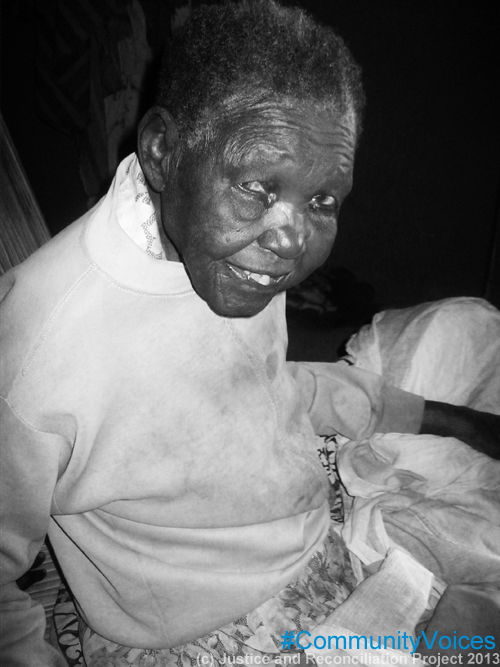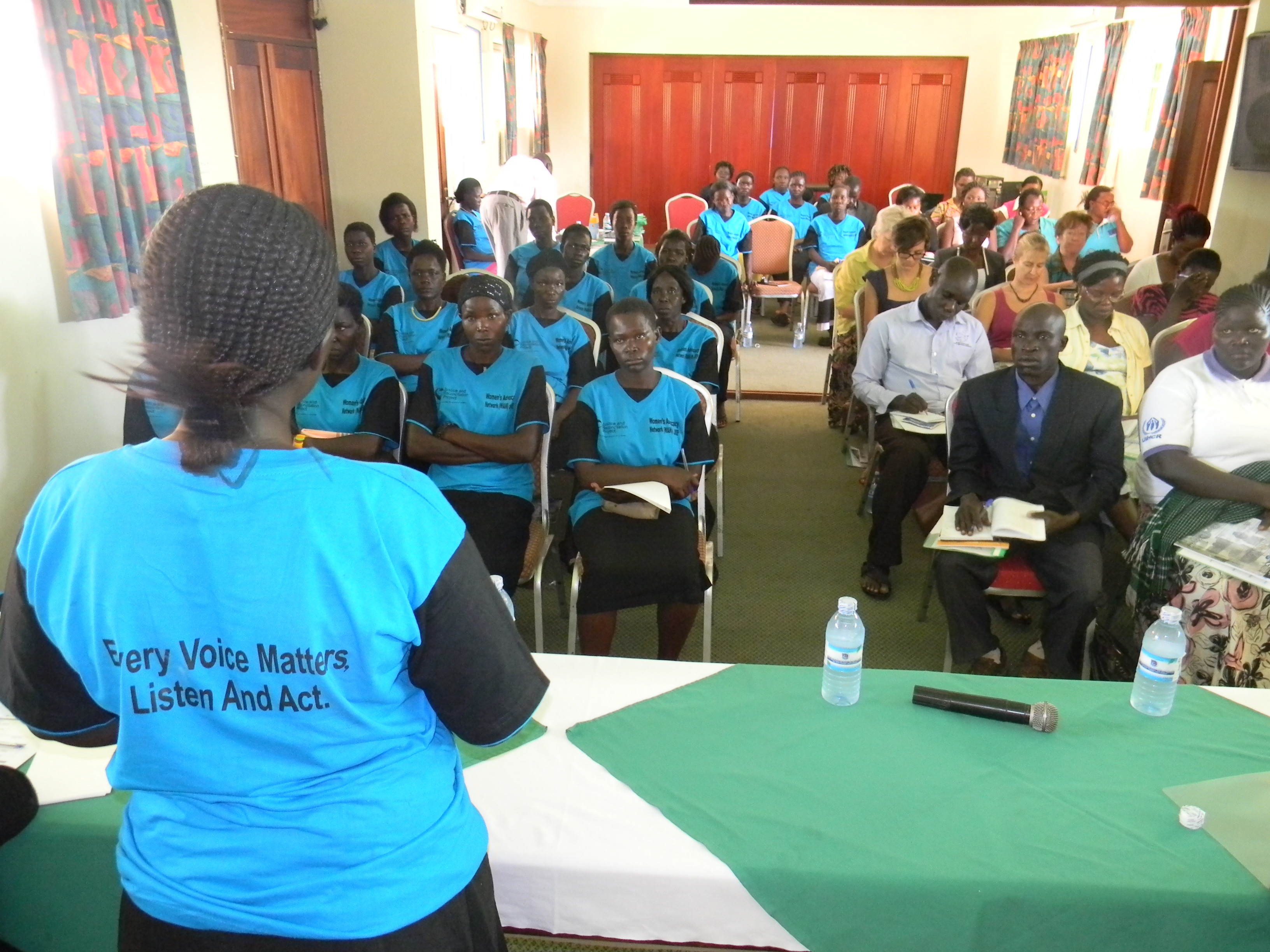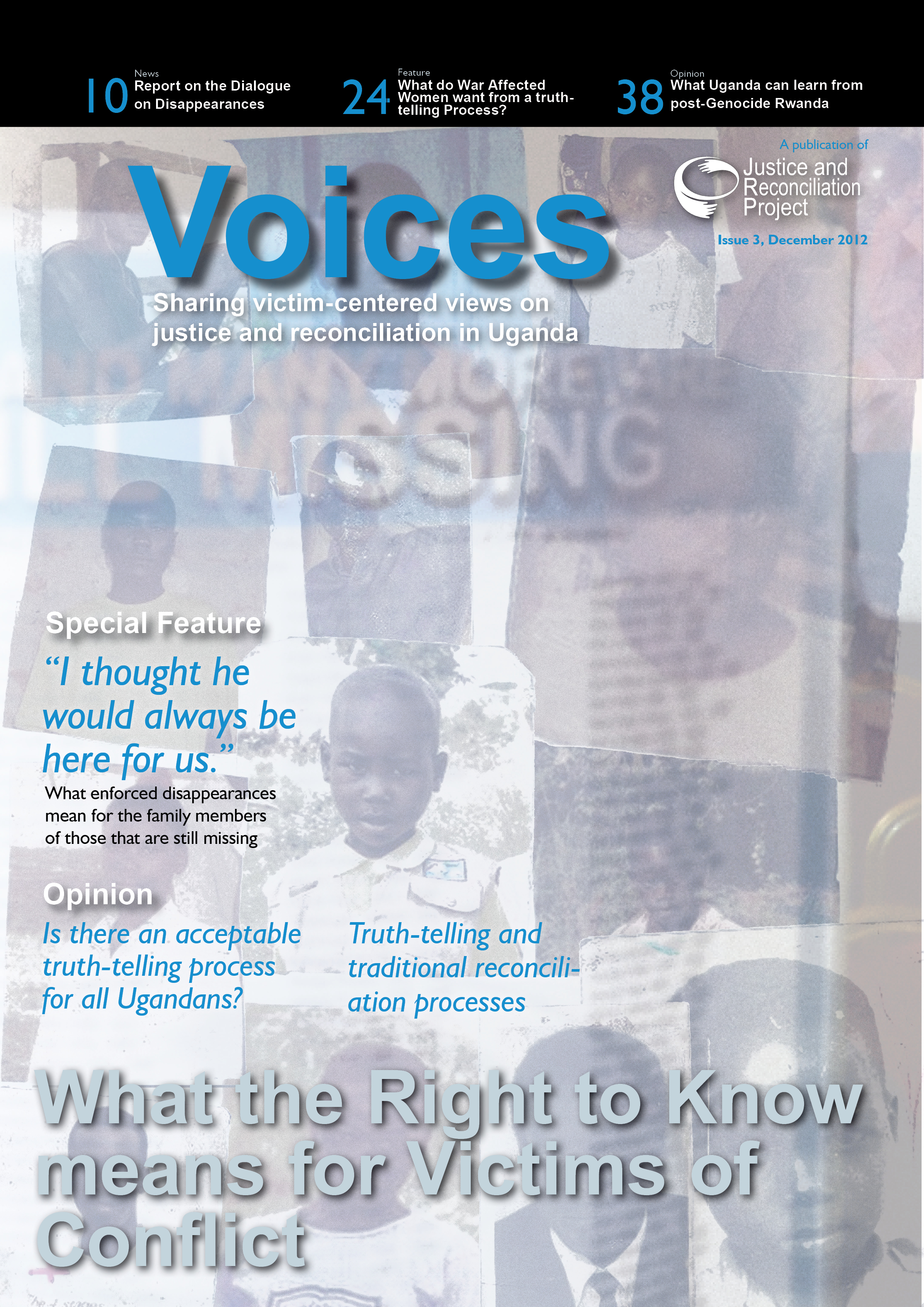41 year old Atiku George lives in Izapi village, Dzaipi sub-county of Adjumani District in West Nile. The only person in the congregation with a wheel chair because of her disability, Atiku had come to attend a memorial prayer organised by St. Peters’ Dzaipi Catholic Parish on 18th May 2013, to honour those who were killed during the insurgency in Adjumani and West Nile and to pray for the return of those who are still held in LRA captivity and for the victims of the conflict. Being the first memorial prayer of its kind in the district and probably in West Nile sub region as a whole, Atiku was visibly emotional as the congregation marched to lay wreaths on the graves of those who were killed and buried in the church, one of whom was his sister. However, it was not only because of his sister that tears were rolling down his face, but Atiku was remembering all the suffering he has had to face to date in the hands of the rebels.
Before 2005, Atiku was a prominent business man in the area, who used to trade in general merchandise. He would acquire goods from Kampala or Gulu and resell at a profit in Adjumani town and Dzaipi. On the fateful day of 16th May 2002, while he was on his way to Adjumani from Gulu, where he had gone to purchase goods for his business, the vehicle he was travelling in was hit by a landmine planted by the rebels in an ambush as they were approaching Pawel, just before Attiak on Gulu-Adjumani road.
“The road was too muddy because it had rained a lot, so the driver decided to dodge the muddy area and pass through the water that had logged. Unfortunately the LRA rebels had planted land mines in the water.”
The vehicle and its goods were scattered from the effects of the land mine, the rebels who were hidden in the nearby bush immediately started shooting and looting the items. Out of 15 people in the vehicle, 13 were killed on spot while Atiku and another person survived. On seeing the Uganda Peoples Defence Forces (UPDF) soldiers approaching the scene, the rebels carried the looted luggage and run away. With the help of the UPDF soldiers, Atiku and the other surviving passenger were taken to Lacor hospital. Because of the injuries he sustained, he stayed in Lacor hospital for four months after which he was transferred to Mulago hospital in Kampala where he spent another six months. This was one of the most trying moments for Atiku, as he lost his left leg during the attack and now has to move with the aid of a wheel chair.
#CommunityVoices collects; preserves and makes accessible personal and collective accounts on experiences and highlights transitional challenges of communities affected by decades of conflict in northern Uganda. It’s our hope that this blog will serve as a medium for communities to share their experiences and for the public to appreciate the transition challenges that they go through







